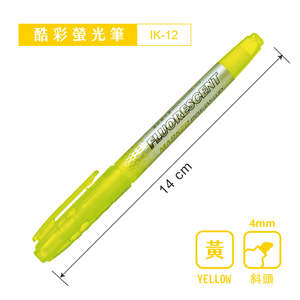
 1收藏
1收藏

 二手徵求有驚喜
二手徵求有驚喜
定價:NT$ 813
優惠價:93 折,NT$ 756
運送方式:超商取貨、宅配取貨
銷售地區:全球
訂購後,立即為您進貨




Hong Kong's story in the Second World War has been predominantly told as a story of the British forces and their defeat on Christmas Day 1941. But there is another story: the Chinese guerrilla forces who harassed the Japanese throughout the occupation played a crucial part in the escapes from Hong Kong's prisoner-of-war camps and in rescuing Allied airmen. This neglected part of Hong Kong's war is Chan Sui-jeung's topic in this pioneering book informed by his many contacts with participants in the guerrilla warfare.
The guerrilla group usually described as the East River Column gathered momentum in 1937 after China and Japan embarked on full-fledged war. Chan reports on its precursors and the formation of more formal structures that provided the basis for the guerrilla activities in Hong Kong between 1941 and 1945. Just as the guerrilla's story starts before the Second World War, so it goes on after 1945 and is entwined with the civil war and the establishment of the People's Republic of China. An important and valuable part of this book recounts how the leaders of the East River Column fared in the period up to and after the Communist victory. The book also sheds new light on the struggle between the Guangdong party members and the cadres from the north and "the problem of Guangdong" as it was characterized by Mao Zedong.
This book thus finally gives due prominence to the role of the Chinese guerrillas in Hong Kong during the war, while at the same time setting that struggle into the broader contexts of Guangdong Province, the long war between China and Japan, and the victory of the Communists and the early years of their rule in the South.
作者簡介:
Chan Sui-jeung was born in Hong Kong in a family whose history in Hong Kong goes back some 200 years. He graduated from the University of Hong Kong in 1959. From 1968 to 1994, he was a career Administrative Officer of the Hong Kong Civil Service. From 1980 to 1984, he was District Officer, Sai Kung, New Territories Administration, where he met many veterans of the East River Column. For over twenty years, he has been an Honorary Research Fellow of the Centre of Asian Studies at the University of Hong Kong.
He is the author of The Jews of Kaifeng: Reflections on Sino-Judaic History and Calendar of Traditional Chinese Festivals and Local Celebrations.
退換貨說明:
會員均享有10天的商品猶豫期(含例假日)。若您欲辦理退換貨,請於取得該商品10日內寄回。
辦理退換貨時,請保持商品全新狀態與完整包裝(商品本身、贈品、贈票、附件、內外包裝、保證書、隨貨文件等)一併寄回。若退回商品無法回復原狀者,可能影響退換貨權利之行使或須負擔部分費用。
訂購本商品前請務必詳閱退換貨原則。影片僅供參考,實物可能因再版或再刷而有差異
 1收藏
1收藏

 二手徵求有驚喜
二手徵求有驚喜
優惠價: 93 折, NT$ 756 NT$ 813
運送方式:超商取貨、宅配取貨
銷售地區:全球
訂購後,立即為您進貨
Hong Kong's story in the Second World War has been predominantly told as a story of the British forces and their defeat on Christmas Day 1941. But there is another story: the Chinese guerrilla forces who harassed the Japanese throughout the occupation played a crucial part in the escapes from Hong Kong's prisoner-of-war camps and in rescuing Allied airmen. This neglected part of Hong Kong's war is Chan Sui-jeung's topic in this pioneering book informed by his many contacts with participants in the guerrilla warfare.
The guerrilla group usually described as the East River Column gathered momentum in 1937 after China and Japan embarked on full-fledged war. Chan reports on its precursors and the formation of more formal structures that provided the basis for the guerrilla activities in Hong Kong between 1941 and 1945. Just as the guerrilla's story starts before the Second World War, so it goes on after 1945 and is entwined with the civil war and the establishment of the People's Republic of China. An important and valuable part of this book recounts how the leaders of the East River Column fared in the period up to and after the Communist victory. The book also sheds new light on the struggle between the Guangdong party members and the cadres from the north and "the problem of Guangdong" as it was characterized by Mao Zedong.
This book thus finally gives due prominence to the role of the Chinese guerrillas in Hong Kong during the war, while at the same time setting that struggle into the broader contexts of Guangdong Province, the long war between China and Japan, and the victory of the Communists and the early years of their rule in the South.
作者簡介:
Chan Sui-jeung was born in Hong Kong in a family whose history in Hong Kong goes back some 200 years. He graduated from the University of Hong Kong in 1959. From 1968 to 1994, he was a career Administrative Officer of the Hong Kong Civil Service. From 1980 to 1984, he was District Officer, Sai Kung, New Territories Administration, where he met many veterans of the East River Column. For over twenty years, he has been an Honorary Research Fellow of the Centre of Asian Studies at the University of Hong Kong.
He is the author of The Jews of Kaifeng: Reflections on Sino-Judaic History and Calendar of Traditional Chinese Festivals and Local Celebrations.
退換貨說明:
會員均享有10天的商品猶豫期(含例假日)。若您欲辦理退換貨,請於取得該商品10日內寄回。
辦理退換貨時,請保持商品全新狀態與完整包裝(商品本身、贈品、贈票、附件、內外包裝、保證書、隨貨文件等)一併寄回。若退回商品無法回復原狀者,可能影響退換貨權利之行使或須負擔部分費用。
訂購本商品前請務必詳閱退換貨原則。
請在手機上開啟Line應用程式,點選搜尋欄位旁的掃描圖示
即可掃描此ORcode

